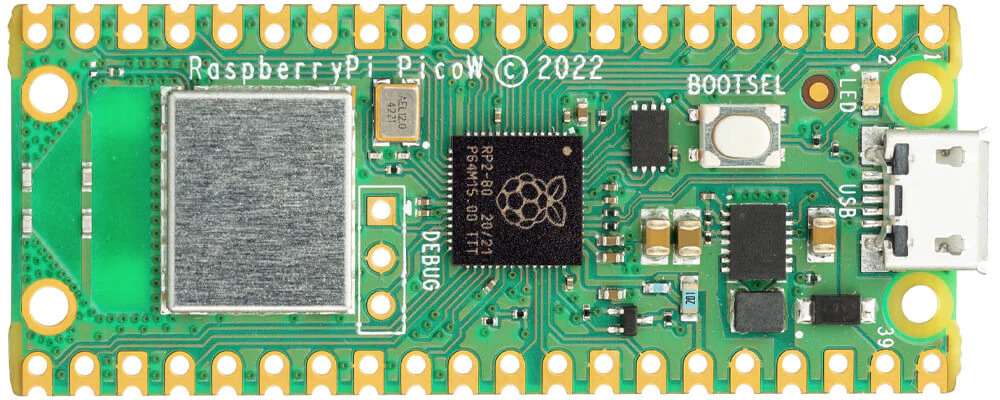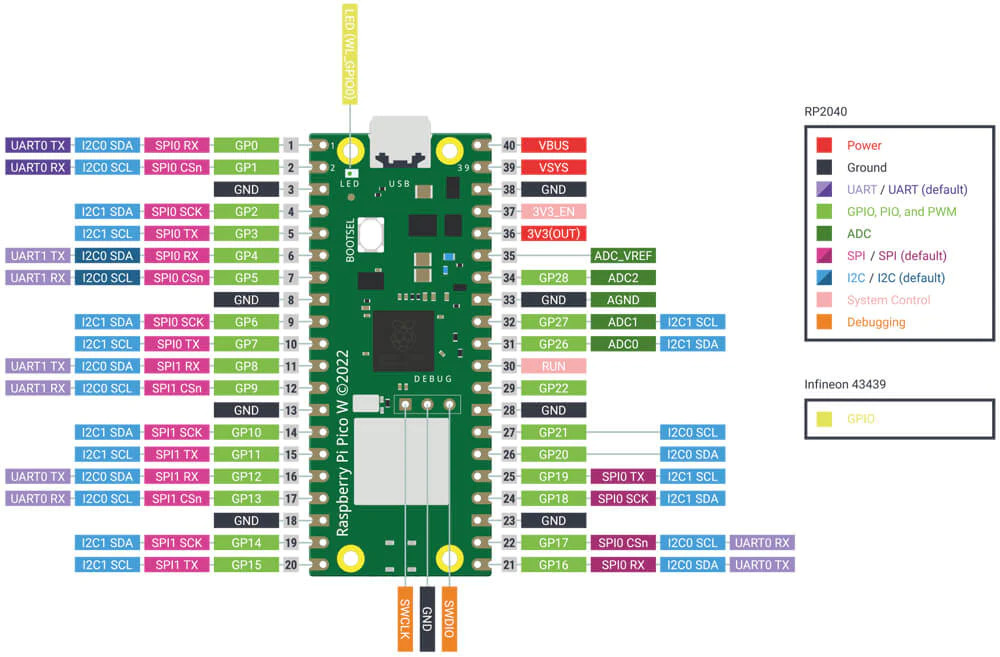Following the hugely popular Raspberry Pi Pico , the new Raspberry Pi Pico W is a wireless-enabled version of the RP2040-based board, adding 2.4GHz 802.11 b/g WiFi and Bluetooth 5.2* connectivity!
The addition of wireless connectivity opens up the Pico W to a vast new range of projects such as remote sensor readings, remote control, home automation, mini web servers, wireless GPIO pin control and much, much more!
At the heart of the Pico W is the RP2040 – the same chip used in the original Raspberry Pi Pico, featuring two ARM Cortex-M0+ cores clocked at 133MHz; 256KB RAM; 30 GPIO pins; and a broad range of interfacing options. This is paired with 2MB of onboard QSPI Flash memory for code and data storage.
WiFi and Bluetooth are enabled via the use of an Infineon CYW43439 wireless chip. The CYW43439 supports IEEE 802.11 b/g/n wireless LAN, and Bluetooth 5.2; however only wireless LAN is software-supported at launch.

With the same footprint and same RP2040 chip, this WiFi Pico can be used as a drop-in replacement for your existing Raspberry Pi Pico projects, upgrading them with WiFi and Bluetooth connectivity options. Just grab a Micro-USB cable (or our handy Pico Essential Kit with a USB cable, headers and more!), install the latest MicroPython Pico W specific U2F file and start programming!
The Pico W can be quickly and easily programmed using MicroPython and C/C++* using popular editors such as Thonny. Learning how to use the Pico and MicroPython is also very easy thanks to the dedicated Getting Started projects and guide. There's also a guide for connecting to the internet with the Raspberry Pi Pico W.
A Raspberry Pi Pico WH version, with a 40-way header pre-soldered, will also be available, however not at the initial launch (estimated availability September 2022).
*Initially, Wi-Fi connectivity will be supported by MicroPython only. C/C++ support is on the way (timescales not yet known).
Raspberry Pi Pico W Specifications
The main chip on board is the RP2040 made by Raspberry Pi (their first in-house microcontroller chip!) and is a dual-core ARM Cortex M0+ processor, with a flexible clock running up to 133MHz. WiFi and Bluetooth are enabled via the use of an Infineon CYW43439.
